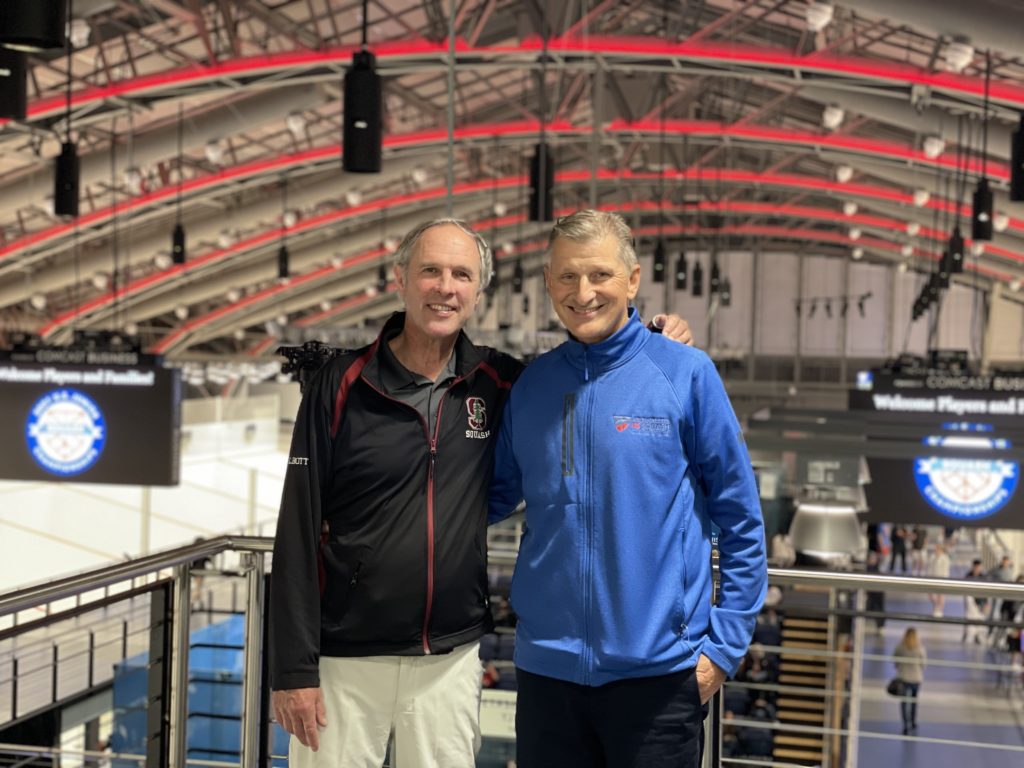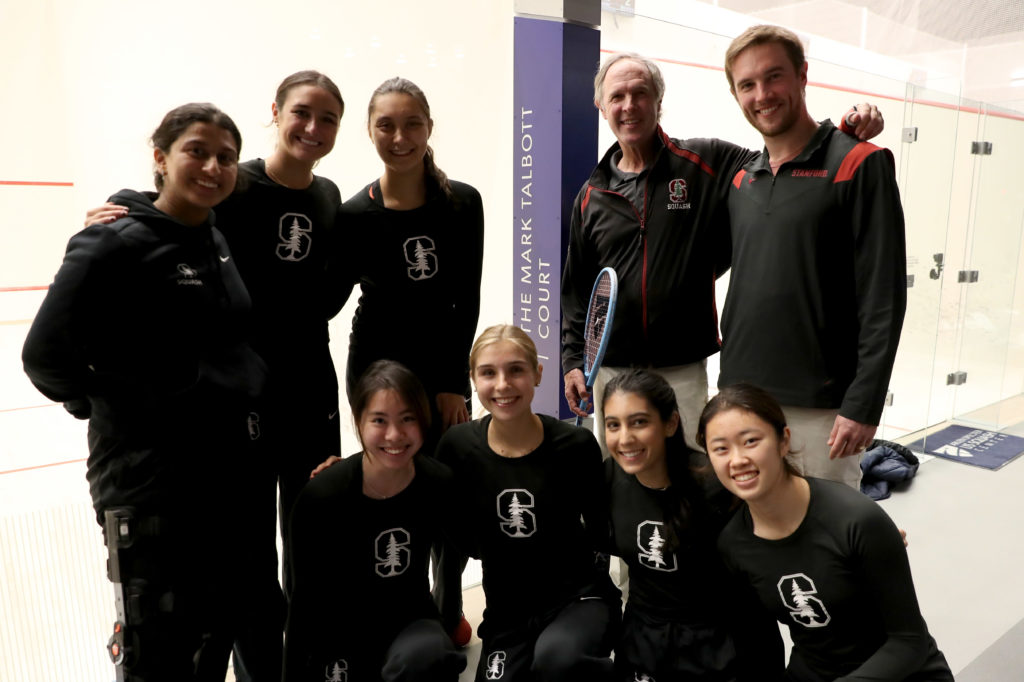
The Arlen Specter US Squash Center welcomed Mark Talbott—one of the most influential figures in U.S. squash history and the Stanford Head Coach—to the facility to celebrate the naming of the Specter Center court 7 in his honor.
A member of the inaugural U.S. Squash Hall of Fame Class of 2000, Talbott is the most dominant American player in history. After joining the World Professional Squash Association hardball tour in 1980, Talbott won an unthinkable 180 tournaments. Known for his unwavering sportsmanship and mental toughness, Talbott maintained the world No. 1 ranking from 1983-94.
Talbott was joined by the Stanford Women’s team during their recent east coast road trip for a series of college matches. The group was welcomed to the Specter Center by fellow Hall of Fame member Ned Edwards, one of Talbott’s greatest rivals and now the Executive Director of the Specter Center.
“Mark has always embodied the most important values of our sport—sportsmanship, integrity and playing for the love of the game all while being one of the most successful competitors the sport has ever seen,” Edwards said. “It was very emotional to see Mark’s eyes light up as he toured the Specter Center for the first time. Squash in the United States would not be where it is today or be known as a sport where players can compete at the highest level while still being cooperative and respectful of their opponent if it weren’t for Mark. Now players from all walks of life will have the opportunity to enjoy and work at mastering the sport as Mark did and be able to do so on the Specter Center’s Mark Talbott Court.”
Talbott has helmed the Stanford varsity women’s squash team since 2004 and developed the program into the country’s first top ten varsity program on the west coast. During the height of the pandemic, Stanford athletics dropped eleven varsity sports programs to club status—including squash—in what became an alarming trend in college athletics around the country. Talbott and the Stanford women’s squash team, working in close collaboration with US Squash and the College Squash Association, played a pivotal role in the successful challenge that resulted in the reinstatement of varsity status for all eleven sports at Stanford.


